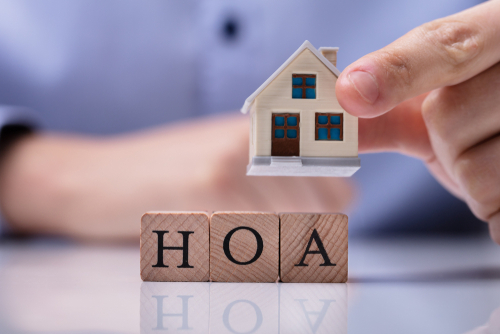What LGBTQ+ People Should Know About Homeowners’ Associations

With more queer couples formalizing their unions with marriage, it should be no surprise that many are considering homeownership. Buying a house in the United States is a complex process. It’s often more complicated than buying a car or major appliance for most people. Between finding a good realtor, checking your credit history, securing a mortgage and more, there are many steps that hopeful homeowners must navigate. Many neighborhoods, both old and new, have property owners’ or homeowners’ associations that can impact your experience owning residential property. Here’s what you should know about HOAs.
Understanding an HOA
An HOA is a private entity often formed in a building with several owner-occupancies, such as a condominium, or created by a developer or home builder for the sake of selling and managing residences in a subdivision. Generally, after a certain number of properties are sold, the builder will transfer ownership to the buyers. To buy a house where an HOA exists, you must become a member and agree to abide by the articles of incorporation, bylaws and formalized rules (known as CC&Rs, or covenants, conditions and restrictions) established by the association. The CC&Rs often have rules about what homeowners can do with their property’s appearance, such as paint colors and when to put out garbage bins. Membership usually involves an annual fee that varies based on the community and the services covered. Homeowners’ associations have become increasingly popular in the US since the 1960s.
Exploring the Impacts of Homeowners’ Associations
Opinions on the need and effectiveness of these associations vary. Many view HOAs as necessary for providing certain community services and enforcing a standard for neighborhood appearance that leads to maintenance of property values. Some municipalities appreciate these community groups for taking some of the financial burdens off local governments. You may have heard anecdotal horror stories from individual homeowners about strict rules and complaints of their rights being restricted. Homeowners’ associations are not government entities, and a common complaint is that there isn’t enough oversight. Laws related to these organizations vary from state to state. Failure to pay fees or follow rules can lead to the association putting a lien on your property and foreclosing!
Some Limitations of Homeowners’ Associations
The Fair Housing Act prohibits discrimination due to race, color, national origin, religion, gender, familial status or disability. Whether you live in a community with an HOA or are considering moving to one or serving on the board, you should know that these associations cannot draft CC&Rs or apply rules in a way that is discriminatory. For example, a bylaw that forbids homeowners from adding porches to their houses may inadvertently prevent someone from adding a wheelchair ramp, which would be inequitable. Discrimination is often subtle and sometimes inadvertent. You should still be careful, as a violation of the FHA could expose an association to a hefty lawsuit.
Taking a Closer Look
In 2021, an HOA cited a gay couple for hanging a rainbow flag for Pride in front of their house. A neighbor raised the issue with the association, prompting a notice for removal. According to the rules, the only flag that a resident could hang is that of the United States. This eliminated other types of flags, including those of sports teams and other organizations. Ultimately, authorities didn’t consider the rule discriminatory. Instead, the couple found a loophole by replacing their outdoor lights with multicolored options, achieving a rainbow light effect without violating the rules.
Whether you’ve just started the hunt or you’re about to move in, it’s important for you to understand the HOA CC&Rs that govern your community, if applicable. Violation of these rules may cause you to lose your home. You should still watch out for discrimination, especially as someone who is LGBTQ+. You and your partner deserve to live happily in a house for as long as it serves your needs.














